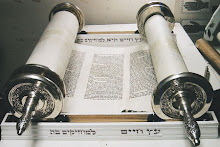| There are many things the Christian can learn from the Jewish observance of Yamin Nora'im and Rosh Hashanah that are helpful in our walk as talmidim (followers, students) of the Mashiach Yeshua: First, the LORD God is indeed the King of all the earth, our Creator and Redeemer. He is Melech Gadol al-kol-ha'aretz, (מֶלֶךְ גָּדוֹל עַל־כָּל־הָאָרֶץ), a "great King over all the earth" (Psalm 47:2).
Though Christians should acknowledge His righteous rule and Kingship at all times, Rosh Hashanah is a "sanctified reminder" of God's creative authority in our lives. Yeshua (Jesus) is called the Mashiach (מָשִׁיחַ), a term that denotes His Kingly dignity and royalty.
He is also the Creator and Sustainer of all creation (Col. 1:16). He is coming to rule and reign from Jerusalem (Zion) in the near future. Christians will be judged according to their deeds of service (2 Cor. 5:10) and the world system (and Satan) will be judged during the Great Tribulation period that precedes the Second Coming. Just as the heavenly shofar was sounded from Sinai, so it will be one day sounded from Zion (Isa. 27:13).
As the only true King and Judge, God indeed has a Sefer HaChayim (Book of Life) as well as a Sefer Ha-Metim (Book of Death). The Scriptures clearly warn that on the Day of Judgment to come, anyone's name not found written in the Book of Life will be thrown into the lake of fire
(Rev. 20:15).
Second, the month of Elul and the preparation for Rosh Hashanah reminds us to be ready for the soon appearance of King Yeshua our LORD. Though we do not know the exact day or hour of His return to possess His kingdom on earth, we are commanded to watch and be ready for His soon appearance. We ought, therefore, be in a constant state of repentance (teshuvah) as we seek to humble ourselves and walk with our God.
The New Testament links teshuvah with salvation (יְשׁוּעָה) itself. Yeshua's first message was "Repent and believe the gospel (בְּשׂוֹרָה)" (Mark 1:15), and Paul linked teshuvah with confession and trust in the saving work of the Messiah on our behalf (Rom. 10:8-13). Teshuvah implies a response to the Person of Yeshua that is demonstrated through confession that He is none other than YHVH, the LORD of Compassion and grace. The sound of the shofar is meant to awaken our hearts and to prepare for coming judgment.
Third, Rosh Hashanah itself, or rather Yom Teru'ah, has prophetic significance in the life of the Christian. The blowing of the shofar is prophetic of the rapture of the church, where those who are part of the Bride of Mashiach, the church, will experience everlasting transformation: "Behold, I show you a mystery; We shall not all sleep, but we shall all be changed, in a moment, in the twinkling of an eye, at the last trumpet (shofar): for the trumpet (shofar) shall sound, and the dead shall be raised incorruptible, and we shall be changed." (1 Corinthians 15:51)
The Talmud states that on Rosh Hashanah the dead will be raised (Rosh Hashanah 16b). This corresponds to the "last trump" mentioned by the Apostle Paul (1 Cor. 15:52).
Fourth, the Tashlikh ceremony reminds us that our LORD is a God of new beginnings, and even if we have sinned and fallen away from Him, He is faithful to restore us and cast our sins away from us. After all, God sent His only Son Yeshua to be our Sin-Bearer and Kapparah, so we can take comfort in His forgiveness when we earnestly seek to repent from the harm we have done and begin anew with God.
Fifth, we should be grateful to the LORD for writing our names in the Lamb's Book of Life, or Sefer HaChayim. Of course we do not believe that we are made acceptable in the LORD's eyes by means of our own works of righteousness (Titus 3:5-6), but that does not excuse us from being without such works (as fruit of the Spirit in our daily life).
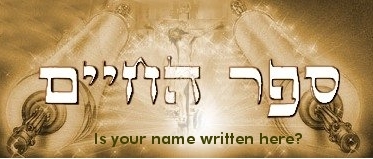 Sixth, the Akedat Yitzchak ("Binding of Isaac") is a major theme on Rosh Hashanah. According to Jewish tradition, God told Abraham that the ram's horn (shofar) should be blown on Rosh Hashanah to remind the people of the substitutionary sacrifice provided by the LORD Himself -- an echo of the First Sacrifice offered in Eden. How much more should we as believers in the greater sacrifice of Yeshua as our Lamb of God celebrate this day?
Finally, we anticipate the prophetic fulfillment of the LORD's covenant faithfulness to Israel when we understand that the Yamim Nora'im foreshadow the future repentance of national Israel in the days to come. This pictures the Great Tribulation and Yom Adonai - the Day of the LORD - that arrives just before national Israel's ultimate shuvah (return). Yom Kippur is the Holiday that pictures the full restoration of Israel to all her covenant promises with Yeshua as the recognized Kohen Gadol (High Priest) of the New Covenant. The Brit Chadashah will be embraced and Yeshua will be revealed as Israel's Savior, LORD, and Deliverer. Then "all Israel shall be saved" (Rom. 11:26).
Sixth, the Akedat Yitzchak ("Binding of Isaac") is a major theme on Rosh Hashanah. According to Jewish tradition, God told Abraham that the ram's horn (shofar) should be blown on Rosh Hashanah to remind the people of the substitutionary sacrifice provided by the LORD Himself -- an echo of the First Sacrifice offered in Eden. How much more should we as believers in the greater sacrifice of Yeshua as our Lamb of God celebrate this day?
Finally, we anticipate the prophetic fulfillment of the LORD's covenant faithfulness to Israel when we understand that the Yamim Nora'im foreshadow the future repentance of national Israel in the days to come. This pictures the Great Tribulation and Yom Adonai - the Day of the LORD - that arrives just before national Israel's ultimate shuvah (return). Yom Kippur is the Holiday that pictures the full restoration of Israel to all her covenant promises with Yeshua as the recognized Kohen Gadol (High Priest) of the New Covenant. The Brit Chadashah will be embraced and Yeshua will be revealed as Israel's Savior, LORD, and Deliverer. Then "all Israel shall be saved" (Rom. 11:26). | 



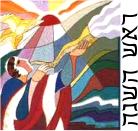


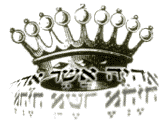

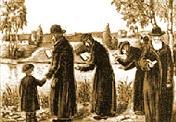
 These silver trumpets are to be distinguished from the ram's horn trumpet (
These silver trumpets are to be distinguished from the ram's horn trumpet (
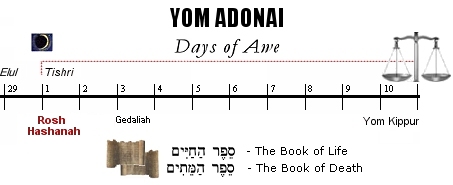
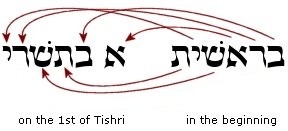 In other words, by rearranging the letters of the word bereshit ("in the beginning"), the phrase aleph b'Tishri ("on the 1st of Tishri") was formed, and therefore this date became associated with the anniversary of creation (or rather, the creation from Adam's perspective, i.e., the sixth day).
Rosh Hashanah therefore represents the day that God began to rule as King of the Universe. When Adam first opened his eyes and human consciousness was born, he immediately understood that the LORD created all things, including himself. According to midrash, Adam's first words were, "The LORD is King for ever and ever." God then said, "Now the whole world will know that I am King," and He was very pleased. The birthday of humanity is therefore the Coronation Day for the King of the Universe. Psalm 47 celebrates the Kingship of God that mentions the "shout" (teruah) and shofar blast of God's coronation:
In other words, by rearranging the letters of the word bereshit ("in the beginning"), the phrase aleph b'Tishri ("on the 1st of Tishri") was formed, and therefore this date became associated with the anniversary of creation (or rather, the creation from Adam's perspective, i.e., the sixth day).
Rosh Hashanah therefore represents the day that God began to rule as King of the Universe. When Adam first opened his eyes and human consciousness was born, he immediately understood that the LORD created all things, including himself. According to midrash, Adam's first words were, "The LORD is King for ever and ever." God then said, "Now the whole world will know that I am King," and He was very pleased. The birthday of humanity is therefore the Coronation Day for the King of the Universe. Psalm 47 celebrates the Kingship of God that mentions the "shout" (teruah) and shofar blast of God's coronation:
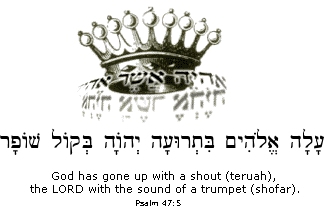
 Sixth, the
Sixth, the 

 Estude a Bíblia com tecnologia. Utilize o software "A Bíblia em Bytes" como
ferramenta de pesquisas, elaborando seus próprios estudos. Instale uma em
seu computador.
Estude a Bíblia com tecnologia. Utilize o software "A Bíblia em Bytes" como
ferramenta de pesquisas, elaborando seus próprios estudos. Instale uma em
seu computador. 